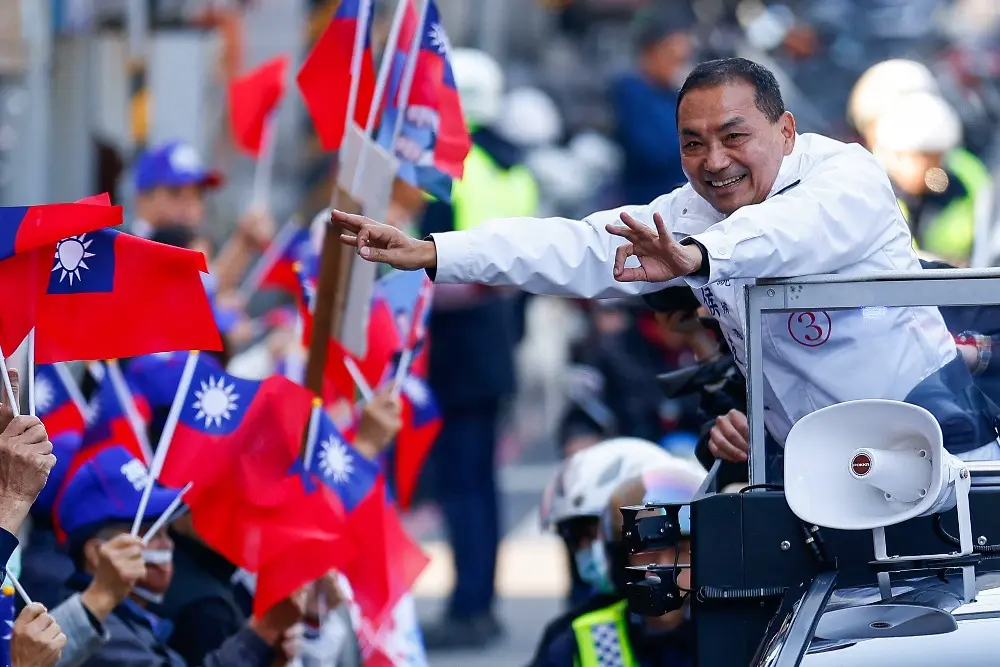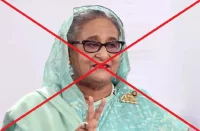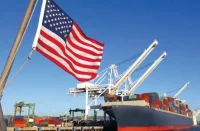
The outcomes of the January presidential elections in Taiwan, with the victory of the candidate of the ruling Democratic Progressive Party (DPP), Lai Ching-te, became an outright disappointment for Beijing. His rise to power under populist slogans about the need to gain independence, expand cooperation with the United States and ensure Taiwan‘s defense capability may negatively affect the timing of the implementation of the plans of the Chinese leadership to unite de facto mainland China with Taiwan into a One China state.
According to Western experts, the results of the 2023 municipal elections in Taiwan, which were won by representatives of the Kuomintang Party (KMT), created in the Chinese leadership an illusory hope for a possible victory in the presidential elections of the candidate from this party, Hou Yu-ih, known as a supporter of establishing closer, including trade and economic, ties with Beijing and maintaining the status quo in political relations.
To that effect, last autumn, a propaganda campaign in support of Hou Yu-ih was launched through the Chinese media, with the main idea that Taiwanese voters should make a choice for themselves between “peace and war“, the latter associated with the political course of the DPP. All this was accompanied by large demonstrative exercises of the PLA Air Force and Navy with practical firing and missile launches in the adjacent waters of the Taiwan Strait.
And only a week before the elections, Beijing proposed the “crux of the biscuit “, namely: to expand trade ties with the island, create a special economic zone in Fujian province for Taiwanese investments and thereby create more trade channels. All this harsh propaganda rhetoric and show of force did not work and, on the contrary, had the most negative impact on the election results.
Voter turnout exceeded the island‘s record 72 percent or 14 million voters. As a result, the aggressive conservatism of the DPP won, whose candidate won over 40 percent of the vote, and Hou Yu-ih, who received second place with 33 percent of the vote, demonstrated, according to local observers, an unconvincing and vague position.
In general, Taiwanese voters were annoyed and frightened by the actions of the People’s Republic of China (PRC), considering them interference in the election campaign. In this regard, it became indicative of how this affected the voting results in different parts of the republic. Thus, the majority of voters from provinces geographically facing mainland China, where the activity of the PRC military was observed, voted for the DPP, while voters from provinces on the other side of the island supported the candidate from the Kuomintang.
According to Western experts, the results of the presidential elections demonstrated that the internal political situation on the island has changed significantly over the 75 years of being outside the power of mainland China: generations of Chinese who lived in a single country have changed, the standard of living of Taiwanese is significantly higher than the standard of living of the people of mainland China, especially in rural areas, there is no unemployment, freedom of entrepreneurship is significantly higher. The model of unification successfully applied by Beijing earlier according to the formula “one state– two systems“ in Hong Kong and Macau after the harsh suppression by the Chinese authorities of anti-government protests by young people and students in these cities no longer works and is not attractive to Taiwanese. And Taiwan‘s two main opposition parties, the Kuomintang and the New Power Party, are not in favor of reunification with mainland China, but against confrontation with the PRC.
Beijing also did not appreciate the Taiwanese people’s desire for freedom and democracy. At the same time, anti-Chinese propaganda played a role, which frightened the absorption of the local economy by huge China and the imposition of communist ideology and morality, as well as the introduction of Socialist–type public administration with Chinese specifics. In addition, Taiwanese are used to free access to information through Internet resources, as it exists in the West, in which they discuss the problems of business freedom. personalities, issues of history, politics, etc., and in China, Internet access is strictly limited for citizens. In fact, a Western–type society has already been formed in Taiwan and the population is afraid of losing the level of freedom and independence to which they are accustomed and which suits them.
It is worth admitting that there are no pro-Beijing-oriented political forces on the island to rely on, and Taiwan, in fact, is increasingly moving away from the PRC.
Beijing is forced to admit the loss of its efforts to prevent the opponent of unification, One-China principle, the candidate from the DPP Lai Ching-te, from coming to power. This is a serious blow to Xi Jinping‘s policy personally, since the President of the People’s Republic of China would certainly like to return Taiwan during his political life and go down in the history of his country as the unifier of the Motherland.
For its part, Washington considers the retention of a representative of the pro-American DPP in power in Taiwan as its diplomatic victory over China. Lai’s first steps as president indicate his desire to further expand cooperation with the United States in trade and technology exchange, in combining educational and scientific programs, and in the military-technical sphere. At the same time, it is unlikely that the Americans will push Lai to aggravate relations with Beijing during their election period, since the new conflict in the Taiwan Strait is currently not beneficial to Washington and may complicate President Biden’s position in the fight against Trump.
According to Foreign Affairs, in June this year, the White House notified Congress of the sale of two packages of weapons to Taiwan: one includes spare parts and equipment worth $ 300 million for Taiwanese F–16 aircraft, and the second for $ 360 million for the purchase of more than a thousand small attack UAVs. In addition, President Biden, in his last interview with Time magazine, warned Beijing that the United States would not leave Taiwan without protection in the event of China violating the status quo in the Taiwan Strait.
All this indicates that Taipei is important for the United States not only from an image point of view, but also from a military–strategic point of view. Apparently, Washington returned to the 1951 idea of former Secretary of State John Dulles to “create an island chain“ of naval bases from Japan and South Korea to the Philippines in order to limit the influence of the PRC in the western Pacific Ocean, which, in fact, may mean the possibility of establishing a naval blockade of the PRC in the future. At the same time, the Americans assume that 90 percent of China‘s foreign trade is carried out by sea using 10 ports on the Pacific coast. In this strategy, Taiwan occupies a key geographical position, as the closest to China (only 200 km) and as an outpost for the containment and control of the PRC.
Taking into account the above, the reunification of the PRC with Taiwan in the current conditions, according to leading Russian Sinologists, is impossible and the most realistic way out of this situation is to return to the pre–existing status quo in the Taiwan Strait, as well as the development of trade, economic, cultural and educational ties.
According to the American magazine Foreign Affairs, in his inaugural speech in May this year, Lai made it clear that Taiwan is a sovereign and independent republic that is not part of China and is not subordinate to it. At the same time, however, the politician promised not to provoke Beijing and not to change the status quo in the Taiwan Strait area.
At the same time, he is convinced that the growing military, political and economic pressure on Taiwan, as well as the increasingly negative attitude of Taiwanese towards mainland China, requires a tougher response. In response to this statement, the Chinese media immediately attacked Lai with criticism, and Chinese Foreign Minister Wang Yi called him a “traitor.“ Three days after Lai took office as president, China launched demonstrative naval and air force operations to “encircle“ the island as a signal to Taipei for “separatist acts for Taiwan independence.“ In response, the Lai administration reacted by tightening its position, and the president accused China of abandoning the status quo in relations with Taipei and accused Beijing of intending to annex Taiwan and liquidate the Republic of China, presenting these actions as an “internal matter“ of the PRC.
It seems that Beijing, in addition to demonstrating force, political threats and hostile rhetoric, as well as economic restrictions, has no real levers of influence on the new Taiwanese administration, but President Lai Ching-te also has no desire to provoke China into a serious conflict, including by initiating his election promise to hold a referendum on Taiwan independence.
According to most Western experts, in the current conditions, a military solution to the Taiwan problem is unacceptable for the Chinese leadership, since a military operation will be considered in the world as an unprovoked aggression. In addition, for Beijing, Taiwan is constitutionally an inner province of China and any armed attack on the island is a blow to its territory and its citizens. The reaction of the West, and above all the United States, to China‘s actions will be predictable, similar to the reaction against Russia due to its military operation in Ukraine.
First of all, Chinese exports will collapse (30 percent of China‘s GDP is generated by exports), supply chains of goods will be disrupted, and yuan index rates will fall. In the current conditions, no country in the world will be able to replace the deciduous Chinese goods and, as a result, a global financial and economic crisis will break out, which is not beneficial to anyone in the world, especially China.
Hopefully, Beijing and Taipei will show restraint in crossing the “red lines“ over the coming years and will not allow the uncontrolled development of destructive events for both countries. Currently, there is only one scenario: to try to find a mutually acceptable agreement while maintaining the status quo and avoiding open conflict, giving the solution to the problem of unification to the next generations of Chinese.














Comments